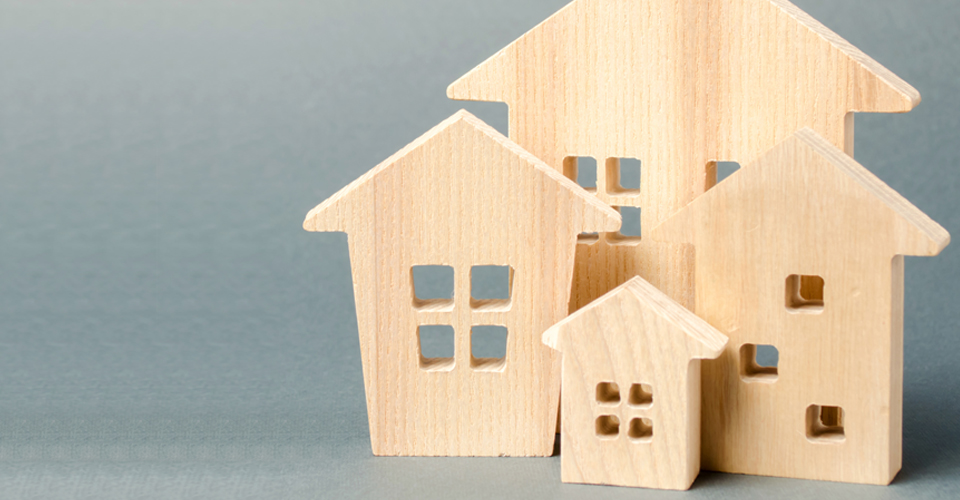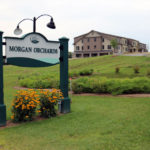
Whether driven by your health, finances, or desire to part with the burdens of homeownership, finding a home that works for your needs is important to creating a lifestyle you love in retirement.
For seniors, there are several housing options to consider depending on your wants, needs, and finances. But deciding which is best for you isn’t easy, as each option has its own requirements and benefits.
There are four main housing options for seniors:
- Independent Living
- Senior Housing
- Assisted Living
- Skilled Nursing Facility
Independent Living
Independent living facilities shift the burden of homeownership from the homeowner to the community, allowing residents to spend more time doing what they love most. It’s a lifestyle that encourages active older adults to engage with their neighbors and the greater community. To promote this active lifestyle, independent living facilities have many onsite amenities, activities, and community-based events for residents.
But all residents must meet the minimum age requirement (usually 62+) and be completely independent and able to manage their own health care with or without help from family or private caregivers.
Here residents can either purchase or rent their own, private living spaces. And depending on the community, this might mean an apartment, condo, or cottage-style home. Residents are charged a monthly service fee for a number of services such as meals, light housekeeping, emergency help and security, routine apartment maintenance, and much more. Health care services are typically not offered, but home-health services that are paid for by the resident are typically allowed.
You might also see independent living referred to as a retirement community, an age-restricted community, 62+ living, or an active adult community.
Independent living facilities accept private payers.
Learn more about our independent living apartments, Strode Independent Living
Senior Housing (aka Senior Apartments)
Senior housing (sometimes referred to as senior apartments) are age-restricted rental apartments for those who are 55 and older. Residents are typically fully independent or can maintain their independence with outside assistance such as a home health agency. It is common for this type of housing to be designed for accessibility and some offer transportation services, social services, and recreational programming.
These apartments are typically built for low- to moderate-income residents, though there are some higher-priced luxury apartments out there.
Assisted Living
An assisted living facility is a step between independent living and a skilled nursing facility. It aims to keep residents as independent as possible when they can no longer live on their own by offering assistance when needed. The level of assistance may vary from resident to resident, but common services include support for everyday activities such as dressing and bathing, finances, housekeeping, meals, and medication management. Social interaction is encouraged with common spaces, activities, and entertainment.
Assisted living typically offers apartment-style living, though there are also personal care-group homes that are set within a single-family home but are licensed by the state.
Some assisted living facilities offer specialized services for those with mobility issues or memory disorders, such as dementia or Alzheimer’s.
Assisted living facilities accept payment from Medicaid/Medicare as well as private payers.
Skilled Nursing Facility
For individuals requiring full-time care, skilled nursing facilities (or nursing homes) offer 24-7 supervision and safety in an accredited facility. Care is overseen by a medical provider, but day-to-day care is provided by skilled nursing staff that includes registered nurses and licensed nursing assistants who develop meaningful bonds with residents.
Individualized care is provided for each resident, but all receive a well-rounded scope of services including dressing and bathing, meals, medication management, exercise, and rehabilitation. Social interaction is encouraged through daily activities and community events.
Skilled nursing facilities accept payment from Medicaid/Medicare as well as private payers.
Learn more about our skilled nursing facility, Menig Nursing Home.
Housing Options As You Age Chart
Download our Housing Options As You Age chart and review each type of housing option side-by-side. The chart can also double as a worksheet to help you figure out which housing options might work best for you.
Looking to remain in your own home a little longer?
Services such as an adult day program might enable you or your loved one to stay at home.
Adult day programs offer healthy meals, medication management, and above all social stimulation to seniors and the disabled who are not yet ready for nursing home-level care but need support during work hours to continue living safely at home. In fact, enrollment in adult day programs has been shown to help participants remain in their homes longer, delaying the need to enter a long term care facility such as an assisted living facility or a nursing home.
Programs are staffed by medical professionals who provide daily care, activities, entertainment, and supervision in a group setting. But the program offers more than support for participants. Family caregivers also benefit from adult day services. Enrolling a loved one can elevate the sometimes stressful task of arranging for a caregiver during work hours. And some programs also offer services specifically for caregivers, such as support groups.
Learn more about Gifford Retirement Community’s adult day program in Bethel, Vermont.

